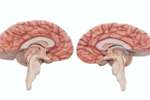We’ve all had those moments or even those days when tasks that once seemed easy are now difficult. Whether you’re moving a box or unloading the groceries, sometimes your body seems to move more slowly than usual. In some cases, fatigue has set in and your body really does require a break. Your muscles are sore, your energy is waning, and you’re just tired. But what if it’s more than fatigue? What if your muscles are weak as a result of a deeper issue? Before you write off your inability to complete certain tasks as fatigue, find out what signs point to muscular weakness and what you can do about it.
What Is Fatigue?
Fatigue often occurs as a result of lack of sleep or illness. Every muscle group seems to be working in slow motion affecting your ability to perform tasks that don’t usually require extra effort. When fatigue sets in, you will have difficulty doing certain things—like picking up a heavy box—but if you exert all of your energy into that one task, you can still accomplish it. Fatigue will also go away on its own if your body gets the amount of sleep it requires or heals from a temporary sickness. When you feel fatigued, be sure to slow down and give your body the rest it needs.
What Is Weakness?
Weakness is your body’s way of informing you that something is wrong. You pay attention to pain, but rarely recognize that weakness is an alarm system for muscular disorders, infections, or nerve impingements. When weakness sets in, it is usually isolated to one particular muscle group, rather than your whole body. It is not associated with lack of sleep or illness and appears suddenly. Unlike fatigue, weakness can be debilitating—your ability to lift a heavy box is prevented despite the greatest amount of applied effort. In this case, it’s imperative that you contact a physician immediately so they can determine the cause of weakness and the necessary treatment plan. Sudden weakness accompanied by drooping facial muscles, inability to speak clearly, can indicate a stroke. If you experience these symptoms please call 911 or go to the nearest emergency room immediately.
What Causes Weakness?
Getting this question answered is crucial to overcoming muscle weakness and addressing the underlying issues. Your NS2 physician will work diligently to determine the specific location of the problem. An examination and series of thoughtful questions should lead your doctor to the source of your weakness—your peripheral nervous system or central nervous system. Weakness occurring as a result of damage to the peripheral nervous system may indicate damaged peripheral nerves, muscular problems, or issues with neuromuscular junction. Nerves can become damaged by an infection or metabolic disease, but most commonly by impingement in small passages of the spine. Spine impingement is used to describe a nerve that has been obstructed or constricted. In the event that weakness is localized in the central nervous system, more detailed exams are necessary to establish the root cause. Issues associated with the central nervous system indicate problems in the spinal cord, brainstem, or brain. Weakness and sudden problems with basic motor skills are not things you should take lightly. Instead, at the first sign of weakness, contact a neurologist or spine specialist immediately. Quickly determining the root of the issue may protect you from a more serious or life-threatening problem. At NewSouth NeuroSpine, we have a team of specialists who will expertly diagnose the problem associated with weakness. If you are experiencing signs of muscle weakness, don’t assume it’s just fatigue. Schedule an appointment with us today so you can experience complete healing.






